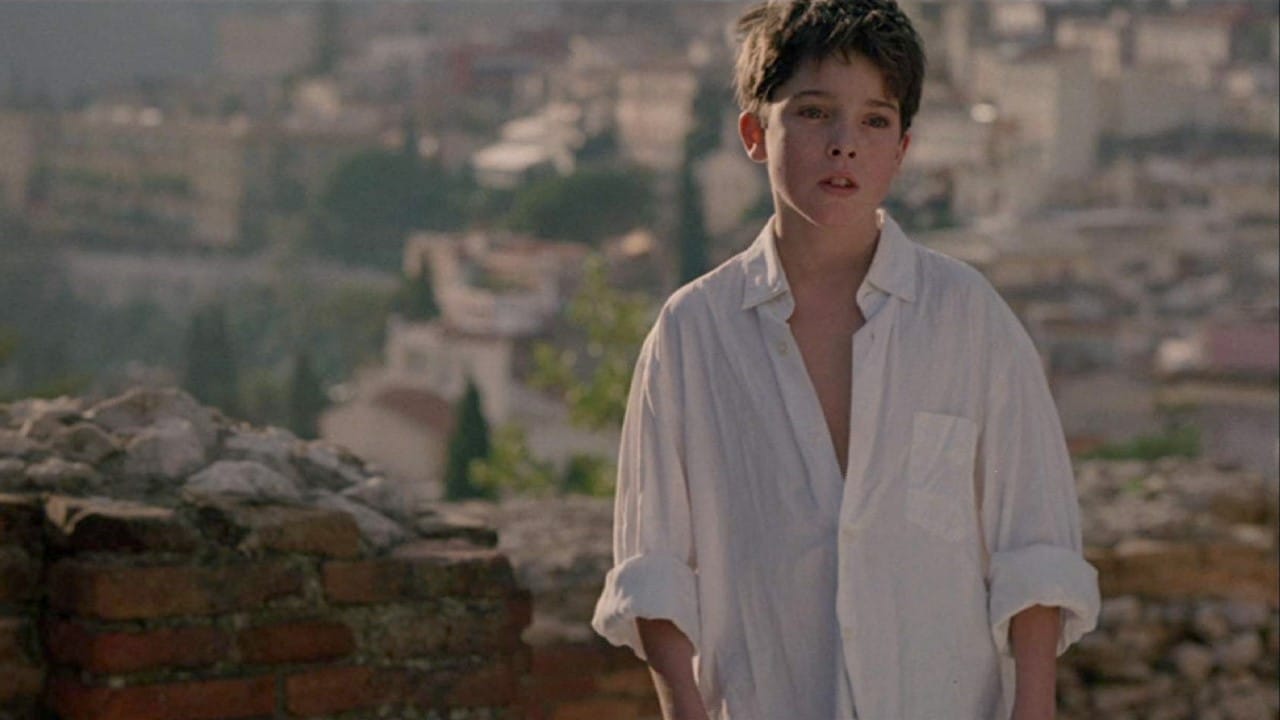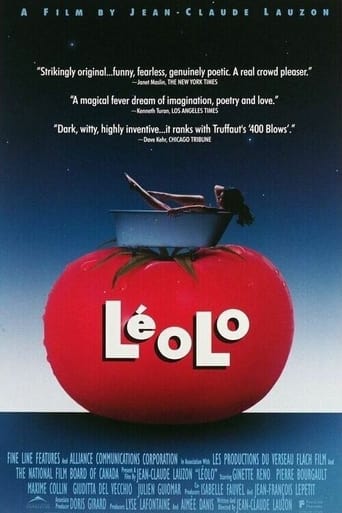



SERIOUSLY. This is what the crap Hollywood still puts out?
View MoreA brilliant film that helped define a genre
The film makes a home in your brain and the only cure is to see it again.
View MoreThe storyline feels a little thin and moth-eaten in parts but this sequel is plenty of fun.
View MoreVery strange thoughts come to youth. Mad tomatoes or such danger of infected nails. The searching the smallest details of life and confidence in its triviality. These scenes of the movie make you think. Beautiful adults and intimate conversations with the cats - all worried a child's soul. The only shield against the world - love. In the hands of a child begins rubbing. Soul singing. This film is about the helplessness and unashamedly. All adult and children's traffic days are woven into one ball movie. Scenes shot near insanity and acting, and beauty is a general aura of guarding. Like a legend about childhood, this movie is splendid on fragments for watching deeply.
View MoreLeo is a small boy who lives with his whacked out family in Montreal. He also has a vivid imagination, creating a world for himself that is both outrageous and funny. It begins with his unique parentage by a virgin mother, impregnated by a tomato. It gives a whole new meaning to the phrase, immaculate conception. His parents are bizarre beyond belief, being absolutely consumed with the importance of bodily functions. Howard Stern must be a co-writer. Leo's brother is bullied, and, as a result, spends all his time body building, and turns into a he man. His grandfather pays scantily clad young ladies to bite off his toe nails and almost kills his grandson in a pool, and the score is by Tom Waits, which is the perfect choice, to match the eccentricities of the talented composer. , Director Jean Claude Lauzon has a wild imagination, and makes Leo unforgettable. His desire for a beautiful neighbor, Bianca(Giudetta Del Vecchio) is a captivating element which every man watching can relate to. If you are looking for something more than the usual Hollywood nonsense, you will not be disappointed with Leolo.
View MoreBe forewarned that there is a shocking scene late in the movie in which a live cat is abused "for the sake of"--art, the film, the story, whatever.I patiently watched the movie up to the cat scene, appreciating some of the interesting approach to storytelling and some of the beautifully shot imagery. I kept hoping for some creative resolution or development in the story, but the movie seemed to slowly degenerate instead into a series of self-indulgent and unnecessarily destructive scenes and sub-plots. By the time the cat scene appeared I was already pretty fed up with the "I'm wallowing in filth and I want you to wallow in it with me" approach the director seemed to take (with a beautiful, poetic gloss to lure the viewer into this bait-and-switch movie), so it was an easy decision to turn the DVD off at that point with no regrets other than to wish the director had not felt it necessary to abuse a live animal and film the animal's obvious pain and panic for the sake of the enjoyment? titillation? of a human audience.Although I can't dispute the movie creator's talent (I feel he should get 8-9 stars for creative talent, 2-3 stars for abusing that talent), I was very disappointed with this go-nowhere, self-indulgently grotesque movie.
View MoreI give this film a 10 for its artistic qualities. It's one of the best Canadian films that has ever been made. The early tragic death of the director (who died shortly after the making of this film) prevented it from getting promoted, and the attention that it deserves.Why I think that Léolo has the recipes to perfect art:1. The poetry: Léolo has a secret argument. On the surface it's a story of a coming-of-age child who discovers sex and death, who rebels against the family's hereditary madness and does so by becoming a dreamer. The madness itself is a metaphor of the threshold between reality and fiction, which is played with in the magic-realism in the narration. The intertextuality to Don Quijote (one of its main theme is madness and reality and fiction), the metaphor to the plastic red rose made in China, also works into the theme of what it seems and what it really is, and the ambiguity that exists in between.2. The social context: The reality of poor, working class French Canadians living in a Anglo Canadian dominant society, and the experience of a child growing up in this grotesque reality.3. Entertainment: The dark humour - the scene where the cross falls off the wall, for example. The alternate ways that one could use pig liver.4. The humanity: The profound psychological exploration of the characters. The magic-realism also provides bitter humour in this context, such as in Fernand's case. He gets buff out of fear, but the fear remains in him no matter what he does. Léo's clash in identity submits him to madness but also is preventing him from it because he is dreaming, and in this dream he is the Italian Léolo.These are only quick memorable examples. Watch the film for the full experience.
View More